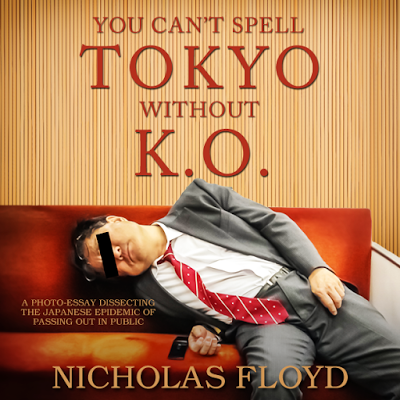Nicholas Floyd's Blog
December 25, 2017
A moral dilemma of minor proportions
A helpful sanity check and all-around healthy exercise is to be unexpectedly put in a situation that challenges your beliefs, or at least makes you question them. For example, once or twice per year I find myself in a situation where I'm forced to rethink my reasons for giving up meat. The situation usually goes something like this: I'm at a restaurant by myself, I ordered what I thought was a meat-free dish, but when it arrives — lo and behold — 'tis not what I expected. Sometimes it's my fault, like when I neglected to fully read the menu, and I casually assumed there would be no meat in the "vegetable soup". Sometimes the restaurant staff simply goofs up the order. But whatever the cause, I am now faced with a minor moral dilemma: sending back the dish might actually be worse than just eating it.Read more »
Published on December 25, 2017 13:51
June 18, 2017
Book review: Trying Not to Try, by Edward Slingerland
The thing about ancient Chinese philosophy is, it's ancient. As relevant as the core teachings might still be, the metaphors and original context sometimes suffer from antiquity so severe that many modern-day folks (myself included) simply can't relate, and therefore miss the message. These days one typically isn't faced with dilemmas such as how to most elegantly butcher an ox for ceremonial offering, or what to do with a crop of comically oversized gourds.
And from a Western point of view, the other thing about ancient Chinese philosophy is, it's Chinese. That is to say, it's incredibly foreign. Many Westerners (myself included) sometimes struggle to understand even modern Chinese culture, simply because Western and Chinese cultures differ so greatly. The two take radically different approaches even to something as fundamental as language: non-tonal pronunciation versus tonal, a phonetic alphabet versus a complex logography, etc. Read more »
And from a Western point of view, the other thing about ancient Chinese philosophy is, it's Chinese. That is to say, it's incredibly foreign. Many Westerners (myself included) sometimes struggle to understand even modern Chinese culture, simply because Western and Chinese cultures differ so greatly. The two take radically different approaches even to something as fundamental as language: non-tonal pronunciation versus tonal, a phonetic alphabet versus a complex logography, etc. Read more »
Published on June 18, 2017 15:23
April 28, 2017
A secular commentary on Ayahuasca
Discussions about Ayahuasca often come saturated with mystical or spiritual overtones. This is particularly true of discussions that involve the discovery of Ayahuasca, the "intelligence" of Ayahuasca, and the concept of Mother Ayahuasca. In this post I'll go against the grain and take a very down-to-earth, nonspiritual approach to discussing these three aspects of Ayahuasca. (The video version of this post can be found here.)
My only goal here is to offer some different perspectives on these topics. I am no expert, and I'm not trying to prove anyone wrong, so take this for what it's worth.Read more »
My only goal here is to offer some different perspectives on these topics. I am no expert, and I'm not trying to prove anyone wrong, so take this for what it's worth.Read more »
Published on April 28, 2017 13:46
April 20, 2017
Preparing for an Ayahuasca Retreat, Part 4: the Psychological Effects of Ayahuasca
I spent twelve days in the Amazon rainforest attending an Ayahuasca retreat where we drank the brew on seven nights. It was both the most difficult and the most therapeutic experience of my life. In part 1 of this blog series I discussed some preliminary considerations regarding Ayahuasca. In part 2 I discussed the preparatory diet. In part 3 I discussed dosages and the physical effects of Ayahuasca.
Here in part 4 I'll be discussing the psychological effects, broken up into four phases: the come-up, the plateau, the comedown, and the residual after-effects. (The video version of this post can be found here.)
Read more »
Here in part 4 I'll be discussing the psychological effects, broken up into four phases: the come-up, the plateau, the comedown, and the residual after-effects. (The video version of this post can be found here.)
Read more »
Published on April 20, 2017 13:49
March 29, 2017
Preparing for an Ayahuasca Retreat, Part 3: Dosages, and the Physical Effects of Ayahuasca
I spent twelve days in the Amazon rainforest attending an Ayahuasca retreat where we drank the brew on seven nights. It was both the most difficult and the most therapeutic experience of my life. In part 1 of this blog series I discussed some preliminary considerations regarding Ayahuasca, and in part 2 I discussed the preparatory diet. Here in part 3 I'll be discussing dosages, and the physical effects of Ayahuasca intoxication. (The video version of this post can be found here.)
Read more »
Read more »
Published on March 29, 2017 16:24
March 20, 2017
Preparing for an Ayahuasca Retreat, Part 2: The Diet
I spent twelve days in the Amazon rainforest attending an Ayahuasca retreat where we drank the brew on seven nights. It was both the most difficult and the most therapeutic experience of my life. In part 1 of this blog series I discussed some preliminary considerations. Here in part 2 I'll be discussing the preparatory diet, which helps minimize the chance of adverse reactions, and which helps prepare your innards for the potentially grueling task of drinking Ayahuasca. (The video version of this post can be found here.)
Read more »
Read more »
Published on March 20, 2017 13:46
March 16, 2017
Preparing for an Ayahuasca Retreat, Part 1: Preliminary Considerations
I spent twelve days in the Amazon rainforest attending an Ayahuasca retreat where we drank the brew on seven nights. It was both the most difficult and the most therapeutic experience of my life. If you're thinking of trying Ayahuasca, here are some things to consider before taking the plunge. (The video version of this post can be found here.)
Read more »
Published on March 16, 2017 14:32
October 29, 2016
A recipe for disaster: Japanese culture + unrestrained capitalism
Headline from USA Today:
Japanese are working themselves to death--literally
The article above focuses on the recent death of 24-year-old Matsuri Takahashi, who committed suicide after months of being forced to work ungodly hours at the major Japanese advertising firm Dentsu. This particular tragedy made the headlines perhaps only because the Japanese Department of Labor officially acknowledged that Takahashi's suicide indeed resulted from overwork, but an even greater tragedy is that in Japan, similar deaths routinely occur and then quietly get swept under the rug.
As I wrote in You Can't Spell Tokyo Without K.O. :
Read more »
The article above focuses on the recent death of 24-year-old Matsuri Takahashi, who committed suicide after months of being forced to work ungodly hours at the major Japanese advertising firm Dentsu. This particular tragedy made the headlines perhaps only because the Japanese Department of Labor officially acknowledged that Takahashi's suicide indeed resulted from overwork, but an even greater tragedy is that in Japan, similar deaths routinely occur and then quietly get swept under the rug.
As I wrote in You Can't Spell Tokyo Without K.O. :
It’s difficult to exaggerate the extreme degree to which the Japanese are overworked. In English-speaking cultures, the phrase “worked to death” often occurs in the figurative sense of being extremely busy, but in Japan the equivalent phrase 過労死 (karōshi) only occurs in the literal sense, because it has become a nationwide crisis: every year a considerable number of Japanese employees actually die from overwork. Most instances of karōshi result not from any sort of back-breaking physical labor in hazardous working conditions like those of a coal miner, but from a gradual accumulation of anxiety and psychological stress that eats away at the employee day by day until culminating in death, often from heart attack or stroke, often before the age of forty. The unbearable stress of work also contributes to Japan’s epidemic of suicide, which, as of this writing, is the country’s leading cause of death in young adults.Several factors contribute to Japan's epidemic of overwork. One major factor is summed up in the Japanese idiom 出る杭は打たれる (deru kui wa utareru), which translates to “the stake [or nail] that sticks out gets hammered down” — a stern reminder to lay low and avoid standing out.
Read more »
Published on October 29, 2016 15:11
August 31, 2016
Book Review: The Doors of Perception / Heaven and Hell
When I first read Aldous Huxley's
The Doors of Perception / Heaven and Hell
, most of it was lost on me, and I assumed this was because at the time I lacked any experience with psychedelics. The second time I read the book — many years and many psychedelics later — I still found myself struggling to follow along. I generally don't write negative reviews, but I think this book offers at least two valuable lessons to writers.Read more »
Published on August 31, 2016 20:25
June 22, 2016
Expanded distribution for You Can't Spell Tokyo Without K.O.
Rejoice! Amazon's reign of exclusivity rights has ended! In addition to the paperback and Kindle versions, You Can't Spell Tokyo Without KO is now available at Apple iBooks, Barnes & Noble, Kobo, Scribd, and maybe even at your local library (if your local library's curator has fine taste in books).


Published on June 22, 2016 17:36



